Martin Scorsese Quotes & Sayings (Page 7)
Martin Scorsese quotes and sayings page 7 (83 year old director). Here's quote # 61 through 70 out of the 114 we have for him.
“I'm sad to see celluloid go, there's no doubt. But, you know, nitrate went, by the way, in 1971. If you ever saw a nitrate print of a silent film and then saw an acetate print, you'd see a big difference, but nobody remembers anymore. The acetate print is what we have. Maybe. Now it's digital.”
“Being a father at a later age is different from when I had my other two daughters when I was in my 20s and 30s. If you're in your 60s and you're with the kid every day, you're dealing with the mind of a child, so it opens up that childishness in you again.”
“I was saying as a joke the other day that I love film editing, I know how to cut a picture, I think I know how to shoot it, but I don't know how to light it. And I realize it's because I didn't grow up with light. I grew up in tenements.”
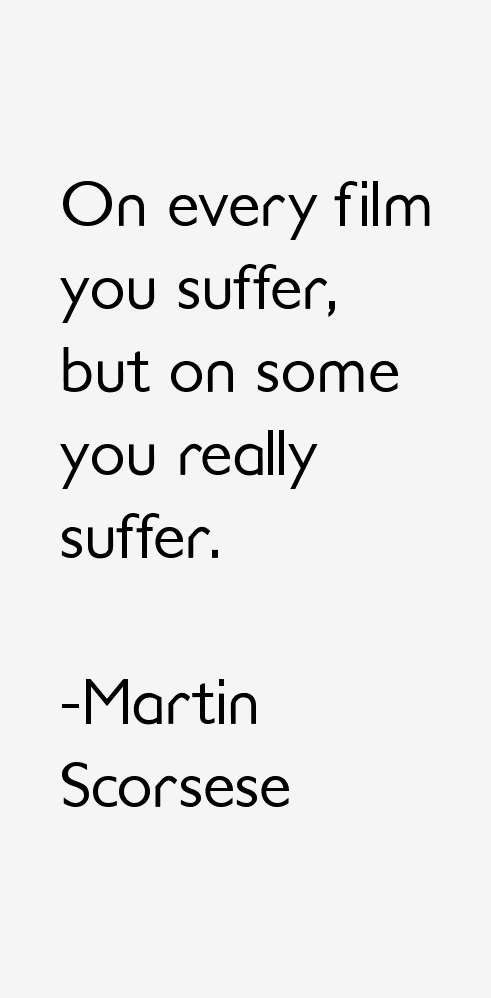
“On every film you suffer, but on some you really suffer.”
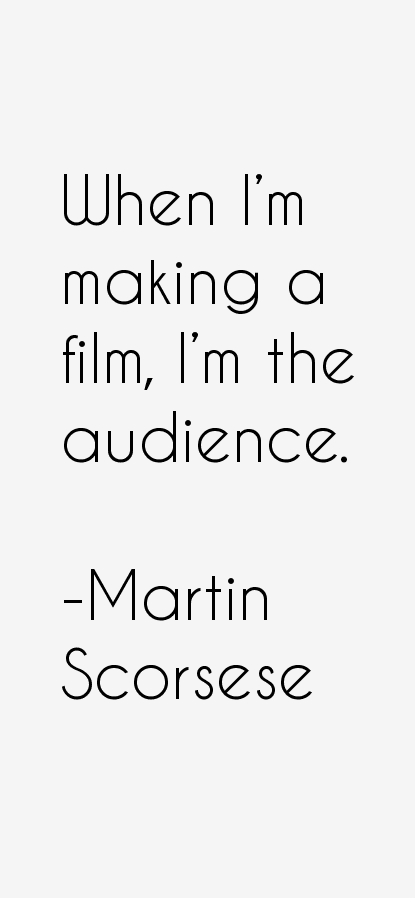
“When I'm making a film, I'm the audience.”
“I love the look of planes and the idea of how a plane flies. The more I learn about it the better I feel; while I still may not like it, I have a sense of what is really happening.”
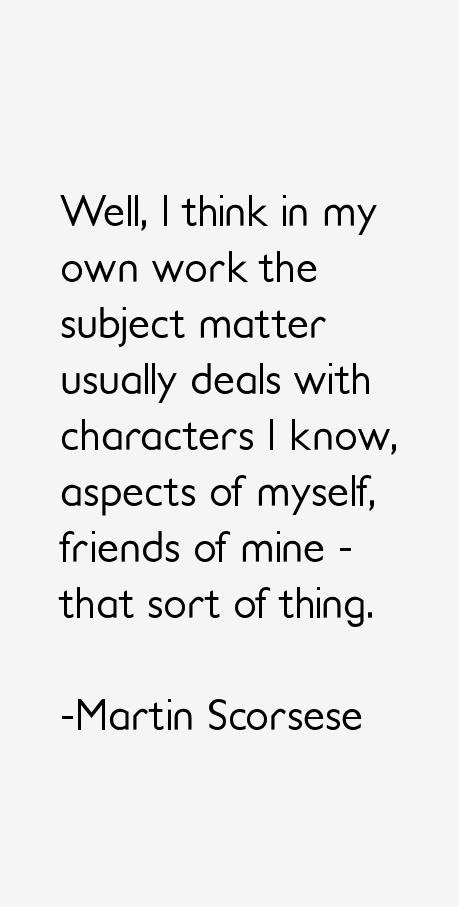
“Well, I think in my own work the subject matter usually deals with characters I know, aspects of myself, friends of mine - that sort of thing.”
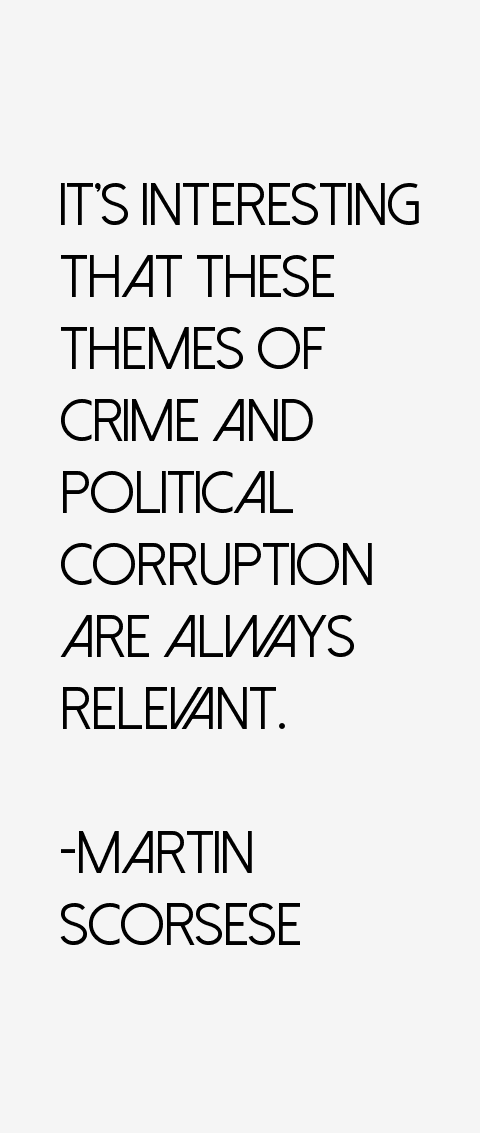
“It's interesting that these themes of crime and political corruption are always relevant.”
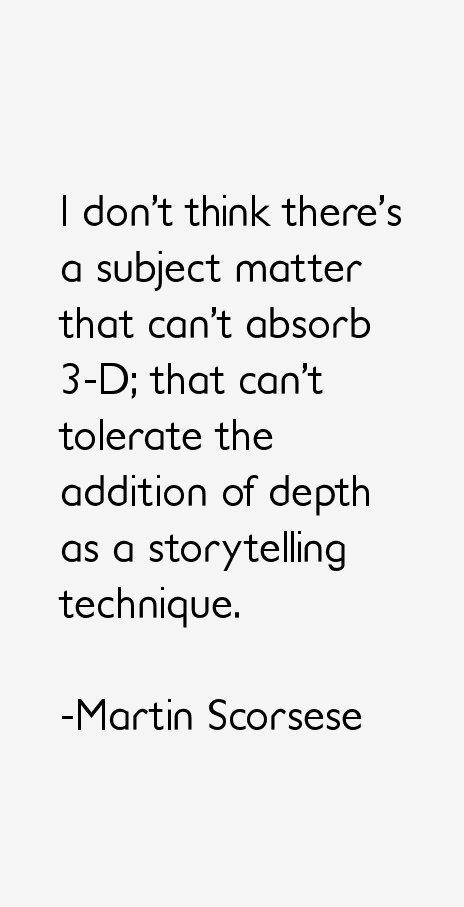
“I don't think there's a subject matter that can't absorb 3-D; that can't tolerate the addition of depth as a storytelling technique.”
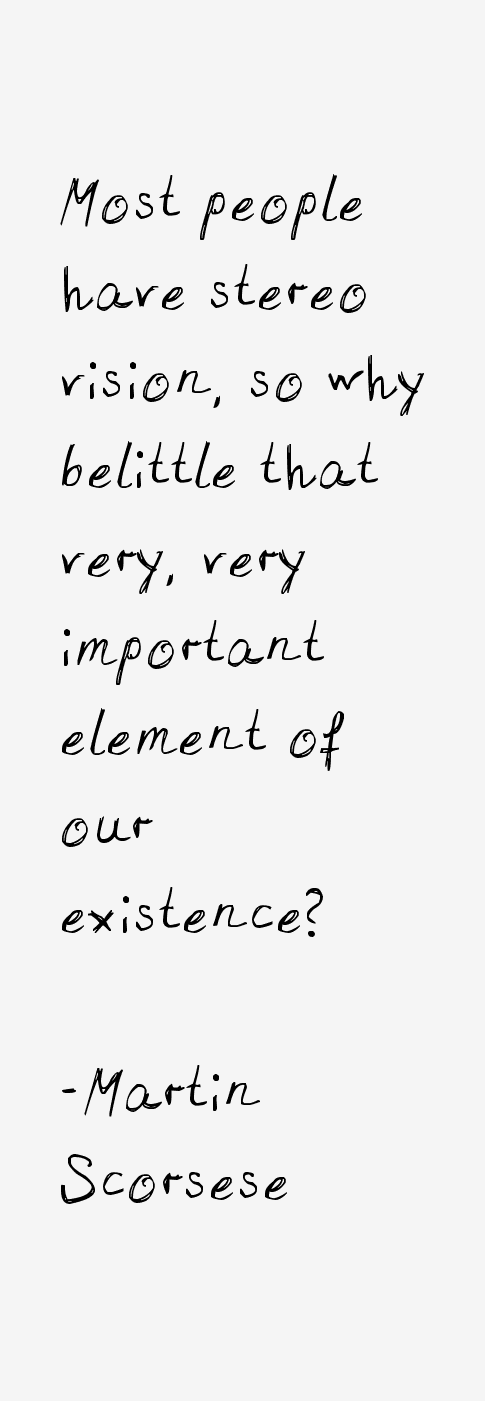
“Most people have stereo vision, so why belittle that very, very important element of our existence?”
Martin Scorsese Quotes Rating
No Ratings Yet
Leave A Comment
























